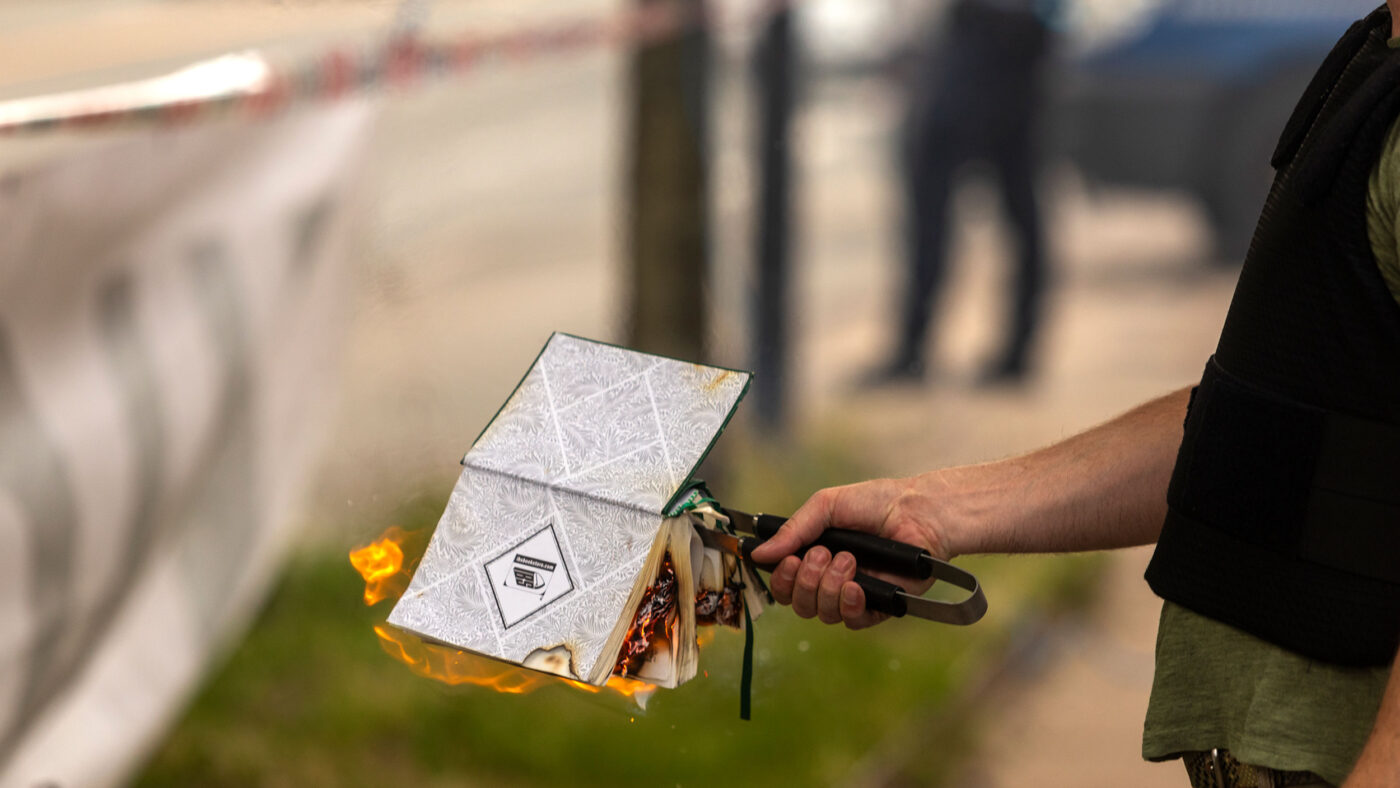The words trot off the tongue easily: despicable, foul, offensive, disgusting. Take your pick, public burnings of the Qur’an are all of those things. As a Jew, I would view with horror and deep anger anyone who burned a Torah. Any decent person surely finds both beyond the pale – just as any book burning is grotesque and offends against the very fabric of our culture.
In recent months Denmark and Sweden have both seen an outbreak of Qur’an burnings. But it’s instructive – and, in the case of Denmark, deeply worrying – to see how the two countries are dealing with what is happening.
Last month the Danish justice minister, Peter Hummelgaard, said that in response to such burnings Denmark would re-introduce blasphemy laws. He didn’t put it like that, of course. He said that he would be tightening the national security aspect of Denmark’s penal code. And who would object to toughening up national security?
Well, for a start, anyone who doesn’t take sophistry at face value. Because this supposed national security-based law would in fact ‘criminalise the improper treatment of objects of significant religious importance to a religious community’. In other words, a blasphemy law.
Mr Hummelgaard said national security was the ‘motivation’ for the ban, because the burnings are a ‘fundamentally contemptuous and unsympathetic act that harm Denmark and its interests’. Its interests are being harmed by protests against the burnings both in Denmark and in some Muslim countries.
Compare are contrast: in 2005 Jyllands-Posten, one of the leading Danish papers, published a dozen cartoons of Muhammad. There were demonstrations, again both in Denmark and Muslim countries. Eleven ambassadors from Middle-Eastern countries demanded a meeting with the prime minister, Anders Fogh Rasmussen. He ignored them.
Now, in 2023, the same country is reintroducing blasphemy laws. This is how the slow, incremental capitulation towards removing freedom works.
Compare and contrast again: in June, the Swedish appeal court ruled that the police had no right to ban two gatherings where a Qur’an burning was planned, finding that the supposed security concerns cited by the police were not enough to limit the right to demonstrate or to supersede Sweden’s commitment to free speech.
In January a copy of the Qur’an had been burned outside the Turkish Embassy in Stockholm, leading to weeks of protests abroad and in Sweden, along with calls for Swedish goods to be boycotted. The following month the police refused to give permission for two new meetings to hold Qur’an burnings, one outside the Turkish Embassy and one outside the Iraqi Embassy, saying that the January burning had made Sweden ‘a higher priority target for attacks’. The Stockholm Administrative Court overturned the police’s ban and its ruling was upheld in June by the appeal court, which held that the ‘order and security problems’ cited by the police did not have ‘a sufficiently clear connection to the planned event or its immediate vicinity’.
There were certainly international implications for Sweden in allowing free speech. Swedish embassies have been attacked with fires and guns, and after the January burning, Turkish president Recep Tayyip Erdogan said, ‘It is clear that those who caused such a disgrace in front of our country’s embassy can no longer expect any benevolence from us regarding their application for NATO membership’ (although by July he had agreed to support its application).
Swedish prime minister Ulf Kristersson has said that the authorities foiled several terror attacks after the first Qur’an burning in January, and that the security situation in Sweden is worse than at any point since World War Two. The terror threat is now classified as at the second highest level, signalling a ‘high probability’ of terror attacks.
But what a contrast with the Danish response: ‘We will protect our open society against those who threaten it,’ Kristersson reiterated. ‘We will stand up for our democratic values but we will defend ourselves.’
It should not need to be reiterated, but given the context I will do so: book burning is disgusting and I view those who burn the Qur’an – or any other religious text – with contempt. They are trying to provoke – and clearly succeeding.
But contemptuous and even provocative behaviour is not – or should not be – the same as criminal behaviour. The ability to offend, to provoke and, at its most basic level, to challenge is fundamental to freedom and democracy. Sweden understands that. Denmark is, it seems, lost.
Click here to subscribe to our daily briefing – the best pieces from CapX and across the web.
CapX depends on the generosity of its readers. If you value what we do, please consider making a donation.


